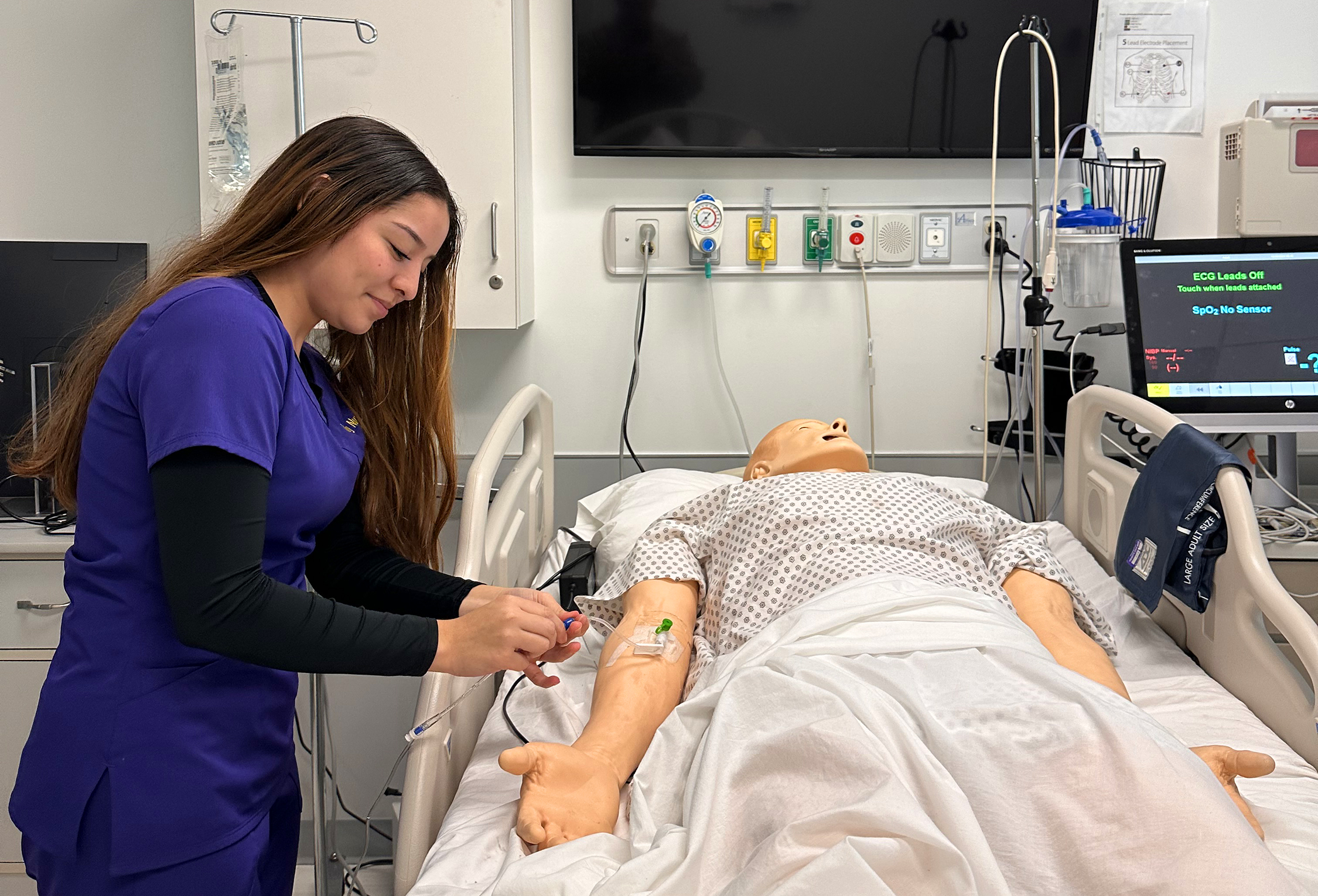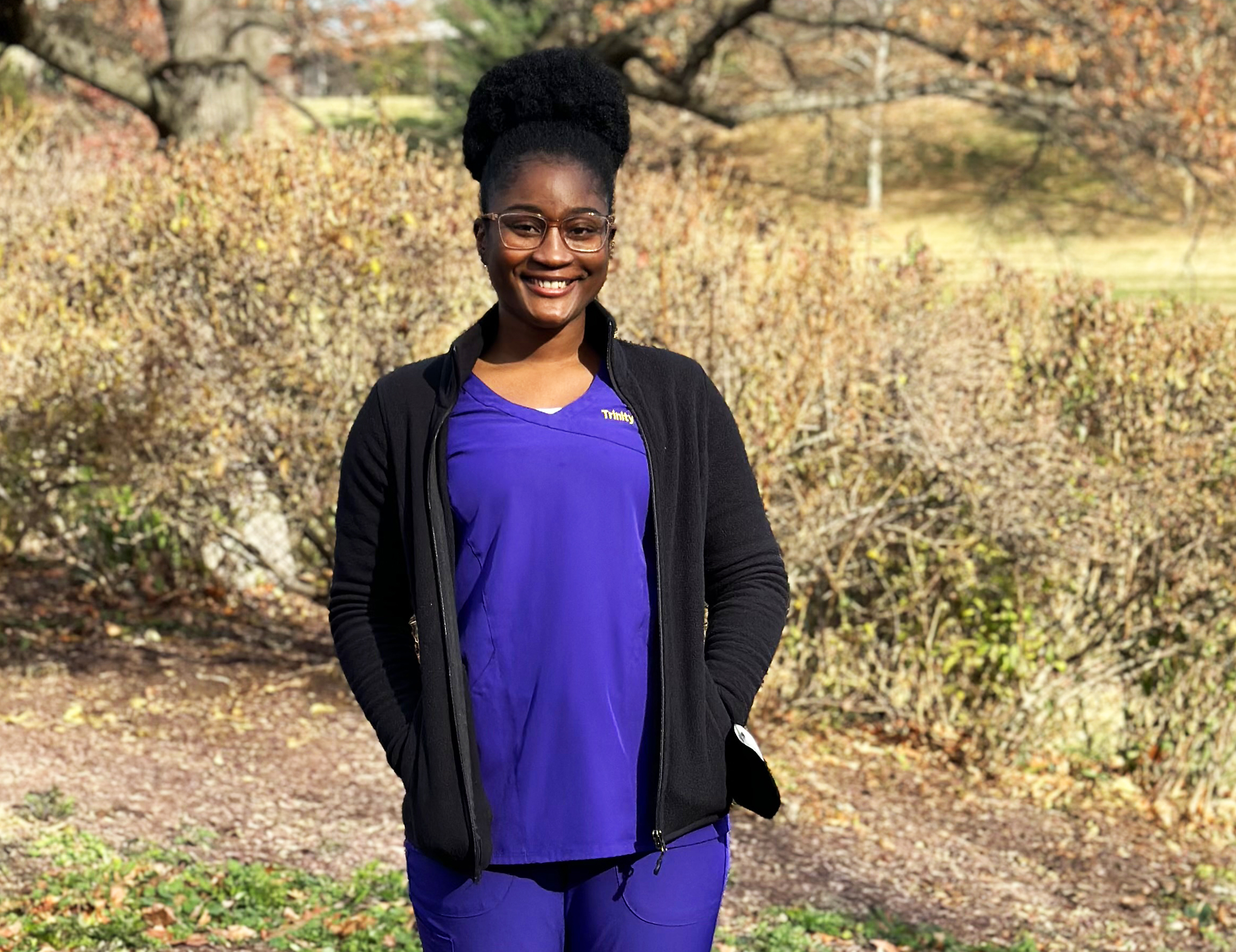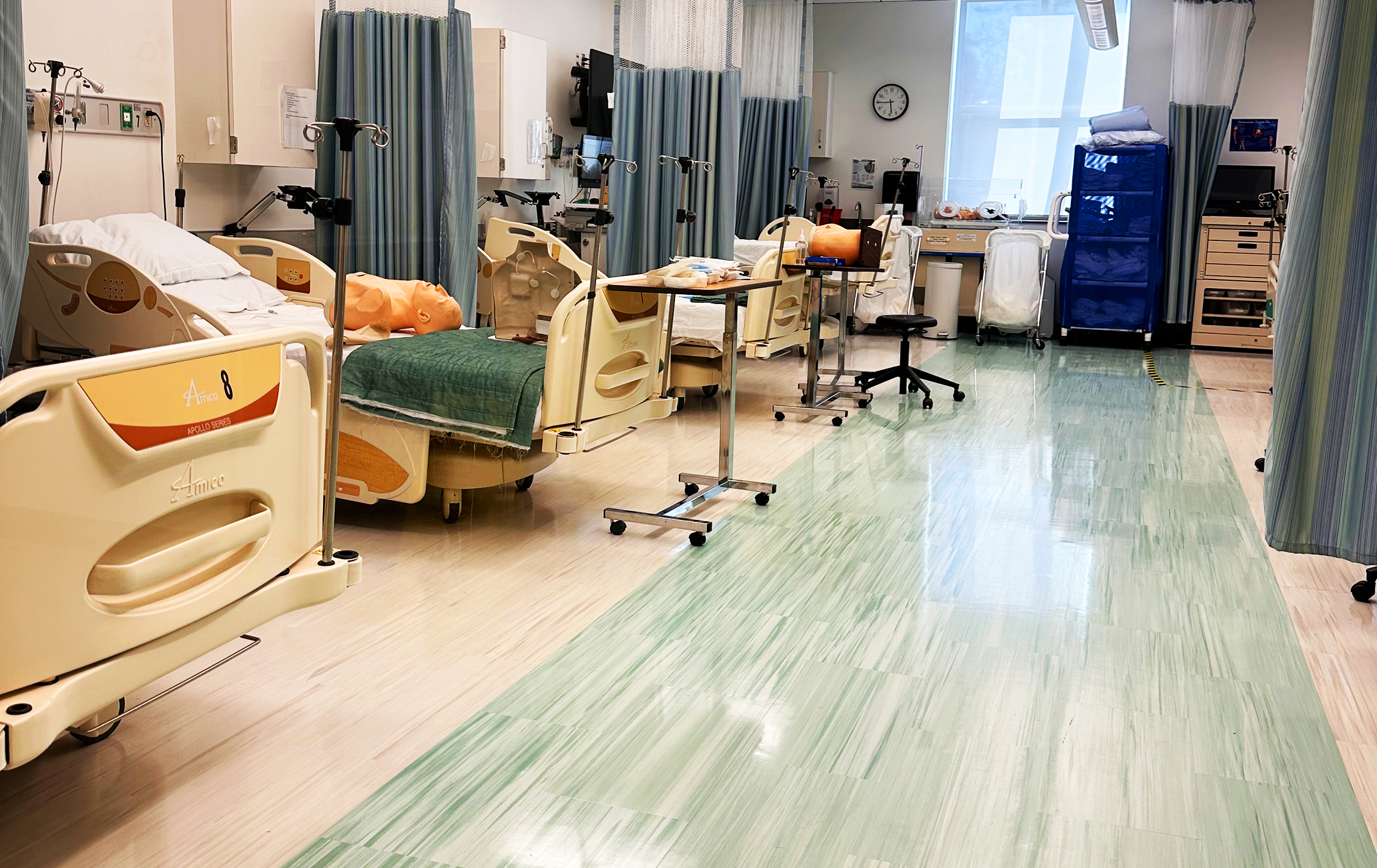
By Lindsay Washington
Trinity Times Correspondent
Trinity Washington University nursing student Rohanna Robinson left her native Jamaica in 2018 following a grueling process to obtain a student visa to pursue her education in the United States.
Once in the U.S., however, Robinson continued to confront a sea of continuing immigration and financial challenges while pursuing her degree.
Just as she settled into her studies in Trinity’s nursing program, she encountered more issues with her visa.
The continuous stress of visa renewal rejections in the complex U.S. immigration system – combined with obtaining elusive financial assistance for foreign students – was eased with the help of Trinity officials, offering Robinson a lifeline as she concentrated on her nursing studies.
She’s now sailing toward graduation in January.
It’s a journey shared by more than a million international students who pursue higher education in the U.S. and a dream Robinson and other Trinity students believe is rescued by the support of their university.
For Robinson and fellow Trinity nursing student Carleaner Martin – who is also a citizen of Jamaica – the Catholic university has served as a safe haven for international students – whether they are struggling with retaining student visas or undocumented immigration status.
This was also the case during the Trump administration years, when many students and Trinity officials viewed the U.S. immigration policies as an unnecessary war on the immigrant population.

Trinity Washington University can be viewed as a microcosm of select U.S. universities in accepting immigrant students – regardless of immigration status.
Trinity’s nursing program has had a unique impact in its support of immigrant students, offering the Conway Scholarship to support them financially through their studies.
The Joanne and William Conway Scholarship program was established at Trinity in 2013 with a $2.8 million commitment to provide scholarships to young women from the District of Columbia – as well as Prince George’s and Montgomery counties in Maryland – who have high potential to complete a nursing degree in four or five years.
Each student is offered a $15,000 Conway Scholarship when accepted into the nursing program, said Carrie O’Reilly, an associate professor of practice and director of Trinity’s nursing program.
This financial support, regardless of citizenship status, allows students to focus on their studies and helps them toward graduation and becoming licensed medical professionals, O’Reilly told Trinity Times.
The financial support offered to the students – paired with tutoring and mentorship – has produced high success rates in the National Council Licensure Exam (NCLEX) exam after completing Trinity’s nursing program, she said.
Trinity’s current pass rate for the NCLEX in the 2nd quarter of 2023 was 100% and 85.71% in the 3rd quarter, totaling an approximate 91% pass rate for the year, O’Reilly said.
Growing up in Clarendon, Jamaica, Robinson struggled with the student visa application process in her home country to pursue her studies abroad, dealing with multiple rejections without explanation, before finally being granted entry into the U.S.
Once in the country, she discovered the nursing program at Trinity to be the perfect fit for her bachelor’s degree aspirations.
However, snarling immigration red tape continued to dog Robinson as she continued her studies.
Her visa renewal was denied three separate times during a four-month period with no explanation why, requiring her to pay a $200 fee for each rejected application.
Robinson was forced to withdraw from classes at one point and start her semester over again, as Trinity officials helped her navigate the immigration red tape.
It’s been an exhausting journey, and she believes she wouldn’t have been able to get her student visa approved in time to get back on track to finish her courses without the help she received.
Trinity nursing senior Martin also came to the U.S. from her hometown of Kingston, Jamaica, to pursue her educational ambitions, only to encounter her own issues finding scholarships and other means of financial assistance to support her education.
“Many of the scholarships required you to be a citizen of the United States,” she said, adding frustration and anxiety in her pursuit of a nursing degree.
Martin ultimately chose to enroll at Trinity, in part for the scholarship opportunities the university offered international students.
Both Martin and Robinson shared the same sentiment that Trinity has offered them a community of support.
Trinity international student advisor Hanan Adnan guided both women through the visa application process and the university’s approval procedure, reassuring their confidence in choosing the school.
It’s vital that Trinity prepares international students for the unique rigors of an education in the U.S., said Sarah Trippensee, a student advisor at the university, adding that it’s equally important that college officials accompany them throughout their tenure at the school.
International students are provided with an orientation before entering the nursing program in their junior and senior year of college, along with refresher training to prepare them for the upcoming semester, Trippensee said.
For example, the nursing program is implementing an anatomy and physiology bootcamp to prepare the students for their classes to come, she said, in Trinity’s efforts to support them throughout the demanding nursing program to ready them to be future nurses and professionals in the medical field.
Students need 650 hours of clinical work to obtain their nursing degree, O’Reilly said, and the immigration status of international students can be a challenge when finding a facility for them to do this part of their program.

Most clinical locations require a social security number and background check, something some immigrant students may not have, she said.
Trinity takes the extra step to find locations that best accommodate the students, O’Reilly said, adding how important it is that the university highlight the attention to detail to every student in the program, regardless of status.
“No student is a nameless, faceless number on a piece of paper,” she said. “We know every student by name.”
International students are frequently the primary provider for their family in their home country and come to the United States alone, O’Reilly said.
However, Trinity’s nursing program is enriched by the intercultural experience that international students bring to the university and share the different health practices in their home country, she said.
Trinity’s international student graduates eventually provide the metropolitan Washington region’s medical community with dedicated and exceptional patient care, O’Reilly added.
Robinson and Martin also appreciate the smaller campus environment Trinity offers and the more tailored experience between professor and student and student to student. As graduation approaches in January, both women plan to join the nursing field in the metropolitan Washington area.